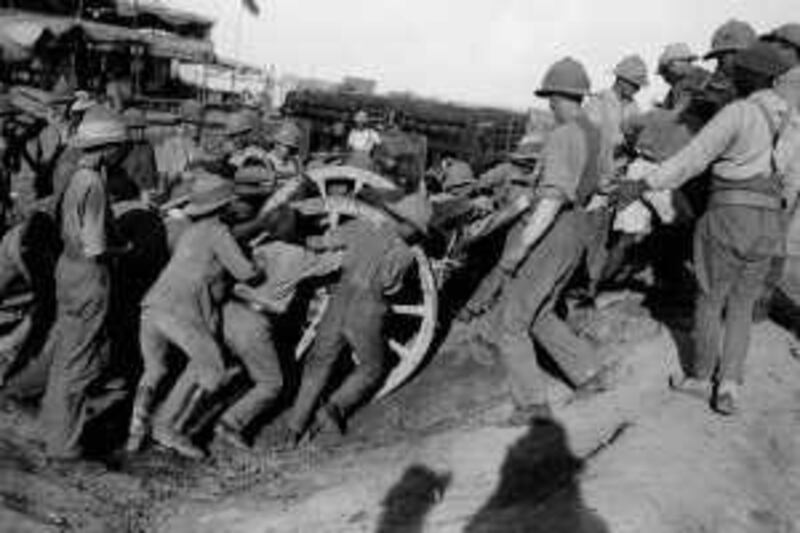LONDON // A campaign is being launched in Britain for the creation of a national memorial to the thousands of "forgotten Muslims" who died fighting in two world wars. As the United Kingdom today commemorates its war dead in solemn Remembrance Sunday services, Emel, a London-based Muslim lifestyle magazine, is calling for the start of a nationwide consultation process on how the country should remember the often ignored Muslim soldiers who died serving what was then the British Empire.
Sarah Joseph, the magazine's editor, said the move is not simply to honour the sacrifice that Muslim soldiers made in the past, but is an attempt to counter growing Islamophobia in Britain today. "It is important to recognise the invaluable contribution made by these Muslims soldiers - they fought for us to enjoy the freedoms that we have," she said. "At a time when those on the far right express such hostility towards British Muslims, while appropriating war imagery for their own use, it is all the more necessary to inform the public of the significant role Muslims played in keeping Britain free.
"We believe a greater understanding of this remarkable episode of British history will give the lie to xenophobic and anti-Muslim feelings and, at the same time, highlight to young Muslims their important role as stakeholders in the future of British society. "That is a dual message of particular importance in these times." Gordon Brown, the prime minister, acknowledged the debt owed to Muslim soldiers in a statement to the magazine. "Their heroism, just like the contribution of British Muslims today, has helped to keep our country prosperous, strong and free."
Leaders of the two main opposition parties also support the call to remember the role of the Muslim troops who fought and died during the two world wars, most of whom were from the Indian subcontinent. In the First World War, about 800,000 Indian Corps troops fought in all theatres of the war, with Muslims comprising 40 per cent of the total. In all, 47,746 were killed or listed as missing and 65,000 wounded.
The Indian Corps won 13,000 medals for gallantry including 12 Victoria Crosses, with Khudadad Khan being awarded the Corps' first VC, Britain's highest bravery award. During the Second World War, the British Indian army expanded to 2.5 million by 1945 from about 189,000 in 1939. More than one-third of the army were Muslims, with the largest contingent coming from the-then undivided Punjab. They fought in theatres across the world with 24,338 killed in action and a further 11,754 listed as missing. More than 50,000 others died from wounds or as prisoners of war.
A total of 31 Victoria Crosses were awarded to Indian soldiers out of a total of 4,028 gallantry awards. The importance of Muslim fighters in the Indian army was emphasised by Winston Churchill who wrote in his memoirs later that he was insistent that Britain "must not on any account break with the Muslims, who represented a hundred million people and represented the main army elements on which the British must rely for the immediate fighting".
Emel, which is starting an online petition at www.emel.com/campaign, is calling for a consultation process on how to best commemorate the Muslim war dead. The magazine wants opinions on whether or not there should be a national memorial, local memorials around the country or, perhaps, a permanent exhibition in one of Britain's national museums. Inayat Bunglawala, a spokesman for the Muslim Council of Britain, commented: "I like the idea of a permanent exhibition in a national museum, which would detail the sacrifices made by people from different religious backgrounds to keep Britain free. These soldiers fought and died together. They deserve to be properly remembered and honoured together."
He added: "Knowing a bit more about Muslim contributions to Britain's past war efforts - and how even in those times the authorities were aware of the importance of catering for the religious needs of their soldiers - can also help us today when any minor accommodation to religious belief seems to be met with howls of outrage." dsapsted@thenational.ae






